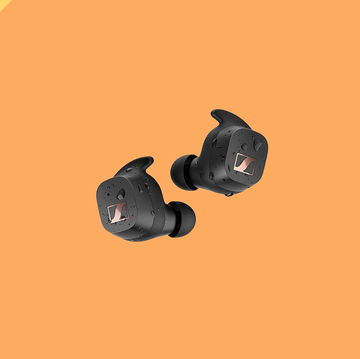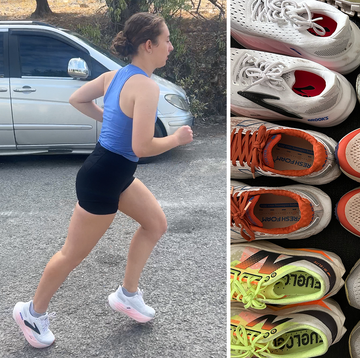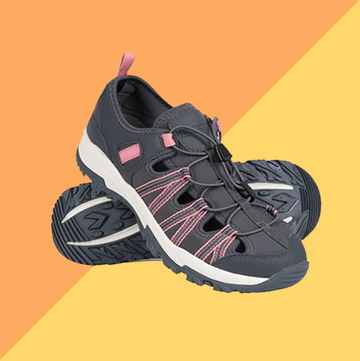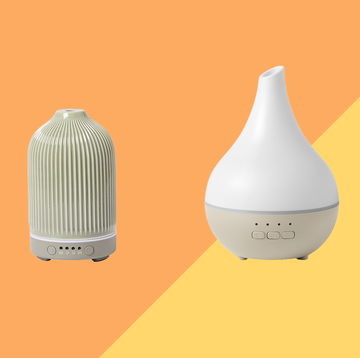We earn a commission for products purchased through some links in this article.
11 best greens powders for 2025, rated by nutritionists
Is it worth incorporating super greens into your routine? The experts weigh in...

From chlorophyll water and cold-water therapy to sauna bathing and ginger shots, the wellness world is no stranger to a viral trend. One of the latest is greens powders, with countless celebs sipping on lurid green drinks and touting their health benefits – research shows the industry is set to be worth a mega $477 million by 2030.
According to fans, the best greens powders can do wonders for your health, with users noting improved digestion, less bloating, more energy and healthier skin and nails, alongside other benefits. Sounds great, but do these fluorescent elixirs live up to their bold claims and are they worth investing in?
To find out, the Good Housekeeping Institute enlisted the help of three expert nutritionists, plus a panel of trusted testers, to put a range of super greens through their paces. Before you swap your salad for a green shake, here’s everything you need to know about the trend du jour, plus how to choose the right supplement for you.
Meet the experts: Georgia Chilton, holds a bachelor’s degree in nutrition and a master’s degree in sports and exercise nutrition. Megan Foulsham is a registered nutritionist with a bachelor's degree in biochemistry and a master’s in eating disorders and clinical nutrition. Ruby Chauhan is an AfN registered nutritionist with an MSc in nutrition sciences. They all work at Calo, an app that provides personalised, healthy meal plans for busy people.
The best greens powders for 2025
What are greens powders?
Foulsham explains that greens powders are supplements typically made from dehydrated and powdered forms of leafy greens, algae, grasses and fruits. Many brands also add probiotics, digestive enzymes and herbs.
They shouldn’t be confused with green juices or smoothies, which are made from blended fresh fruit and vegetables.
“Many promise a quick and easy boost of vitamins, minerals, antioxidants and phytonutrients,” explains Foulsham. “They often provide vitamins A, C, K and folate in addition to minerals like iron, calcium and magnesium.”
Are greens powders good for you?
According to Foulsham, greens powders can be useful if you’re struggling to eat enough fresh fruit and veg daily. “If you’re someone who doesn’t have a balanced diet, it’s possible that the vitamins and minerals included in the powders can provide you with more nourishment than your diet,” she says.
However, she stresses that they aren't essential and it’s best to get your nutrition from whole foods where possible. “We wouldn’t usually recommend a greens powder as the first port of call; we would always suggest a food-first approach,” she adds.
She points out that there is limited evidence to suggest that taking greens powders is beneficial, noting that they don’t count towards your five-a-day. Additionally, if you’re already eating a healthy, balanced diet, it’s unlikely that a greens supplement will make much of a difference. This is because your body can only absorb a certain amount of vitamins – you’ll just wee out what your kidneys can’t handle.
That said, she believes there could be some psychological benefits. “While the evidence to support greens powders is limited, if taking one puts you in a ‘healthy’ mindset and encourages you to make other changes to better your health like moving more or prioritising sleep, then it can be helpful,” she says.
On a health kick? We've also tested the best mushroom coffees, the best matcha powders and the best electrolyte drinks.
Greens powders vs. whole foods
One point to consider, says Foulsham, is that the vitamins and minerals in whole foods have better bioavailability than powders. That means they’re more easily absorbed by the body. “While greens powders do contain lots of micronutrients, there is little to no data to support the bioavailability of the micronutrients in this form, so we can’t be sure the body is making efficient use of them,” she explains.
Plus, whole foods provide us with more than just vitamins and minerals – they contain fibre, which is essential for maintaining a healthy digestive system. With greens powders, most of the fibre content is lost in the production process.
What should you look for in a greens powder?
If you do want to jump on the leafy bandwagon, Foulsham advises opting for a powder that contains real fruit and vegetables. “Aim for a product that has whole foods listed within the ingredients list and plenty of vitamins and minerals listed under the product NRVs (Nutrient Reference Values),” she says.
She suggests steering clear of supplements, which contain lots of synthetic and fortified ingredients. “Synthetic ingredients, especially sweeteners, can cause gastrointestinal distress, while fortified vitamins are ultimately no different to standard multivitamins, aside from the cost,” she explains.
As most greens powders are not regulated by governing bodies, there’s a chance that they don’t live up to their claims. So, it’s a good idea to choose one that's been tested by a third party to check the ingredients list is accurate and free from contaminants. Verve's powder, for instance, is Informed Sport Certified, while Athletic Greens is NSF Certified for Sport.
If you’re unsure or taking medication, it’s best to seek advice from a registered nutritionist or dietician before you take a green supplement.
How we test
Priyankaa is our sleep and wellness expert, specialising in expert-tested reviews and roundups on the latest health and fitness products. From walking boots to running machines, Priyankaa has written about hundreds of products and is passionate about providing in-depth, unbiased reviews. Plus, as an avid runner and gymgoer, she knows exactly what to look for when finding the right gymwear, fitness tracker or earphones.
Priyankaa has an MA in Magazine Journalism from Cardiff University and over five years’ experience in health and fitness journalism. Priyankaa has written for Stylist’s Strong Women Training Club, where she regularly wrote about diversity in the fitness industry, nutrition tips, training advice and her experience completing various fitness challenges. She has also written for a variety of publications including Business Insider, Glamour, Bustle, Metro, HuffPost UK, gal-dem and more. Outside of work, Priyankaa can usually be found trying out a new gym class, seeking out London's best eats or watching a Spanish TV show in a bid to keep up her language skills.
Kim Hawley is our health and fitness product tester. Her career in fitness has spanned over 30 years. Prior to joining the Good Housekeeping Institute, she worked as a personal trainer, writer and fitness instructor for some of London’s most prestigious health clubs, including The Harbour Club, David Lloyd and The Chelsea Club. Passionate about women’s health and fitness, especially in pre/post menopause, she is also a Level 4 PT and holds a professional nutritional qualification. Kim is responsible for rigorously testing everything from cross trainers to smart watches.


13 best headphones for running and workouts

The best period swimwear, tried and tested

The best sleep supplements to help you nod off

The best running shoes to shop now





















